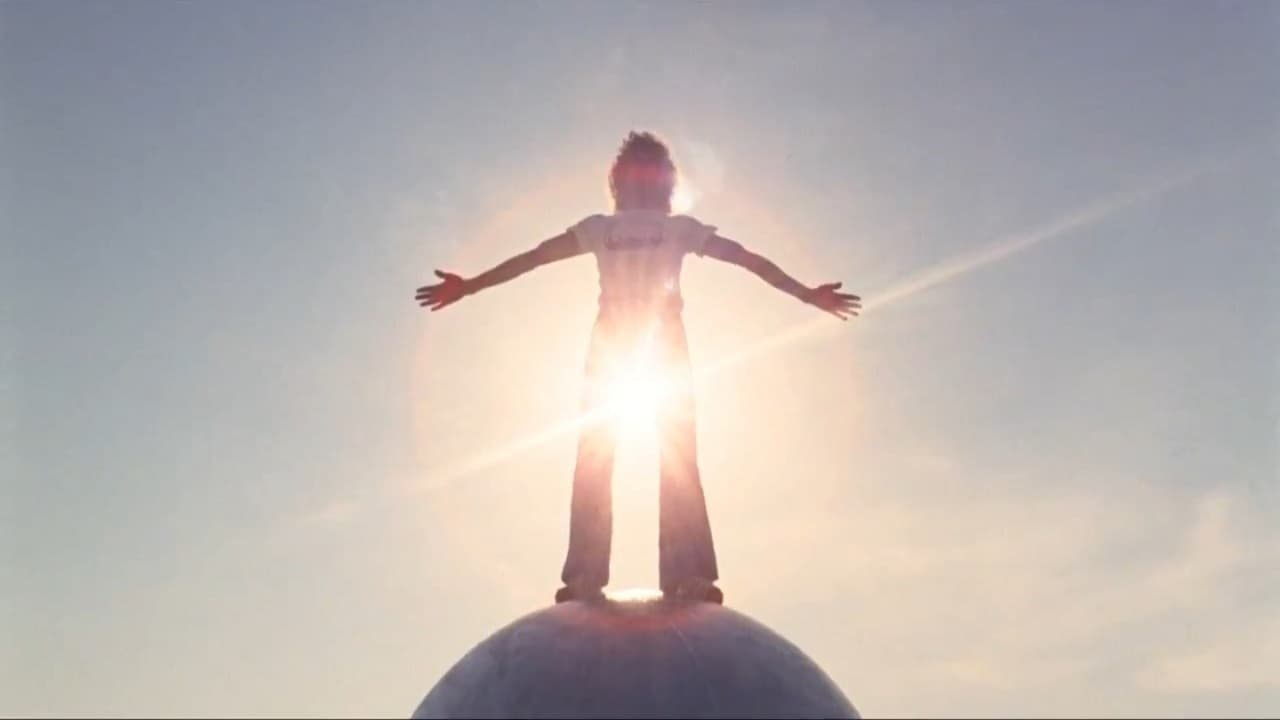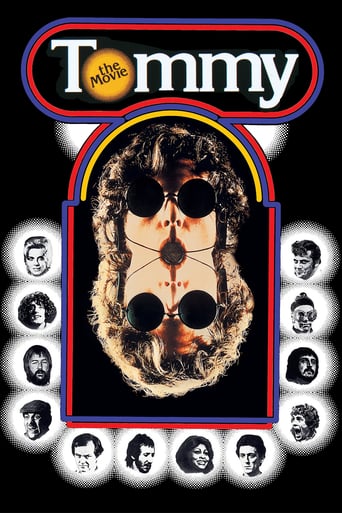

The great thing about this movie is it's rawness. Objectively, musical movies like Moulin Rouge or Blues Brothers are much more refined. But The Who's Tommy is very raw: in my opinion, the scene transitions are not always perfect, the recording material and post-production does not live up to modern standards and the set-up is sometimes a bit bizarre. But all this gives the movie and edge, supported by the edgy music of the Tommy album itself. If you ask me, it is much better than some more renowned musical movies like Chicago, or even Pink Floyd's The Wall.
... View MoreI doubt I can add much to the many reviews already posted for Tommy, Ken Russell's demented film version of The Who's classic 1969 rock opera. It's not a movie that will please everybody. It's weird at every turn and feels very much like it was crafted by someone on psychedelic drugs. But it's also fascinating to watch (and listen to) and never boring. I've read many reviews here that talk extensively about Russell's creativity, the amazing sets, the various people performing The Who's music, and so on. All of that's great but I would like to focus on one specific person who makes the movie for me: Ann-Margret. Aside from being stunning throughout the picture (even when writhing around in baked beans and chocolate), she has one of the best voices in the film. Most importantly, she gives the film's standout performance. Most of the people in this are camping it up as much as possible or they seem to be high. Ann-Margret manages to match everyone's craziness while still bringing her own special charm and energy to her role. She was nominated for an Oscar for this (and won a Golden Globe). She's really fun to watch and, if you're a fan of hers, I strongly recommend you see this. Overall, the movie is not without its flaws but it's worth a look at least once. Be prepared, though, it's very 'out there' and never lets up, moving along at a fast pace from start to finish.
... View MoreThough I grew up in the 1970's I was not raised on the music of "The Who" but "The Beatles" as I had a brother 6 years older then I.I had heard of "Tommy (boy)" as a musical on Broadway. I had no idea it had been a film made almost 20 years before. If I had seen this before a Broadway Musical was proposed I wouldn't have let them make it.29 years later I found this one early morning on The Antenna TV network. What a horrible film. Yes this was a rock opera. A bad one that should never have been made.It is very easy to figure out what is happening as no words are spoken at all until the "Lovely Legs" competition. However it with bad music you figure out two people are falling in love, you have to guess they marry or are married to begin with never really sure. This was about 15 minutes into movie. Then the character breaks into a song of course this is a rock opera after all.I say this movie is overall bad and not watchable unless you are a fan of "The Who". The music is grating and annoying.
... View More"Tommy" started life in 1969 as an album by The Who. It was described as a "rock opera", and was indeed the first album to be so described, because the songs told a story, which was explained on the album's sleeve notes. It was not originally intended to be performed on stage in the same way as a Classical opera, but someone clearly thought that the story had dramatic potential, because it was turned into this film and later into a Broadway play. The title character is a young man who becomes deaf, dumb, and blind following a traumatic childhood experience, then later becomes a champion pinball player and is hailed as the Messiah of a new religion. I must admit that I am not a great fan of The Who's music; my main reason for watching the film was that it was directed by Ken Russell, one of the leading British auteur directors of the sixties and seventies. Not every film made by Russell was a masterpiece- some of them were far from being so- but he was generally interesting (as well as controversial), and he brought to "Tommy" his the vivid visual imagination which was a hallmark of his films. Early in his career, as in his famous "Elgar" documentary and even in something like "Billion Dollar Brain", Russell was capable of restraint and good taste, but by the mid-seventies he had developed a visual style characterised by bright colours and a fast-moving kaleidoscope of striking, sometimes shocking, images. The film is perhaps most notable for Russell's visuals; scenes which stand out include the Prologue, which tells the story of Tommy's parents, Group Captain Walker and his wife Nora, the "Acid Queen" sequence with Tina Turner, the bizarre scene involving a religious cult that worships Marilyn Monroe and the Pinball Wizard sequence in which the film's best-known musical number is belted out by a manic Elton John; the cast list names John's character as the "pinball wizard", although the lyrics of the song make it clear that this description refers to Tommy himself. (Practising Catholics might have been offended by the Marilyn scene, which parodies the Mass, although it should be pointed out that Russell himself was a Catholic). Russell also had a good eye for the eccentricities and inanities of British popular culture in the sixties and seventies, something shown in the holiday camp scenes, the Christmas party and the various advertisement parodies. The Who's lead singer Roger Daltrey plays the title role, and the other band members all make appearances, along with other rock stars such as John, Turner and Eric Clapton. The film is a "sung through" musical, without spoken dialogue, so it is surprising that Oliver Reed and Jack Nicholson, neither of whom were noted for their singing voice, were cast, Reed in the major role of Tommy's stepfather. The best acting performance comes from Ann-Margret as the sluttish Nora, a performance which won her a Golden Globe Award and an Oscar nomination. (Ann-Margret is only three years older than Daltrey, who plays her son, but in a heavily stylised, non-naturalistic film this does not really matter). My main problem with the film is that this type of rock music is not really the ideal vehicle for putting across a story dramatically, particularly a tragic story like Tommy's. (Besides being struck dumb, deaf and blind, Tommy also loses his father at an early age, is tortured by a sadistic cousin, sexually abused by a perverted uncle, and suffers problems with drug addiction. Even his role as the new Messiah fails to bring him satisfaction or happiness). The music, generally loud with an insistent rhythmic beat, designed to be exciting or exhilarating, lacks the variety to cope with the vast range of different emotions which would be involved in a story like this one. The film does manage to tell a story- one can always work out what is going on from the visuals alone, even if the lyrics are unclear or inaudible- but it does so without any subtlety, insight, sympathy or understanding. (The scenes in which Tommy is abused, making light of a serious matter, struck me as particularly crass).The traditional Broadway-style musical, and for that matter the traditional Classical opera, are much more effective narrative vehicles in this respect. As I said, The Who are not really my cup of tea, musically speaking, and those who love their music may well enjoy the film more than I did, although I note that there are several negative comments on here from those who describe themselves as Who fans. The visuals are striking, if occasionally garish or in dubious taste, but it is difficult to make a successful film on the basis of visuals alone. "Tommy" betrays its origins as a rock album, resembling nothing so much as a series of loosely-connected pop videos. Nice videos, shame about the film. 5/10
... View More